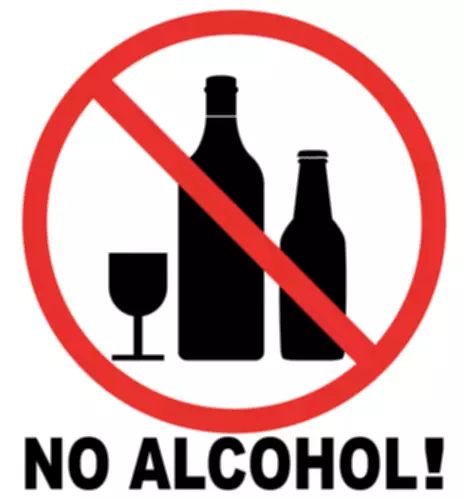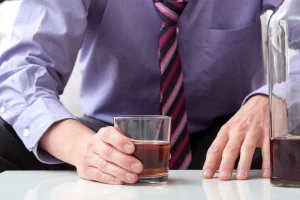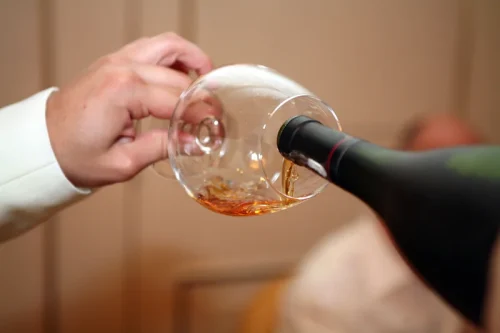
However, the damage is near permanent at this point, and symptoms will progress with continued alcohol consumption. Short-term effects of alcohol on vision clear on their own as you sober up. The effects of alcohol on vision can be short-term (appear immediately after drinking and disappear after sobering up) or long-term (after consuming alcohol for an extended period). Long-term abuse of alcohol can also lead to toxic amblyopia or vision loss. Both short-term and long-term use of alcohol affects the optic nerve and the relationship between the brain and the eye. Swelling of the blood vessels in the eye or the look of red bloodshot eyes is a common feature of those who have been lifetime drinkers.
Long-term damage
Early diagnosis and intervention can significantly improve the prognosis and prevent further complications. The most effective way to prevent liver damage from drinking is to reduce or eliminate alcohol consumption. If you are struggling to cut back on drinking, seeking support from friends, family or professional counseling can be beneficial. There are also various support groups and programs designed to help individuals overcome alcohol dependence.
Long term effects

The liver is responsible for metabolizing nutrients and providing energy to the body. When it is damaged, its efficiency decreases, leading to a persistent feeling of tiredness. This symptom often goes unnoticed as it can be attributed to various other factors; but, if you are a heavy drinker, it is crucial to consider liver damage as a potential cause. “The good news is that earlier stages of steatotic liver disease are usually completely reversible in about four to six weeks if you abstain from drinking alcohol,” Dr. Sengupta assures. Heavy drinking can also lead to a host of health concerns, like brain damage, heart disease, cirrhosis of the liver and even certain kinds of cancer.
How alcohol affects your eyes
- It is important to determine the cause of any vision changes; your eye doctor can treat them or send you to a specialist for further diagnosis or treatment.
- If you think you or someone you know may have a problem with alcohol, the NCADD (National Council on Alcoholism and Drug Dependance, Inc.) and Alcoholics Anonymous have many resources to help.
- Also known as age-related macular degeneration (AMD), there are other risk factors for this eye condition aside from getting older.
- For example, it may only take two drinks in an hour for a 100-pound woman to experience blurred vision or up to five drinks in an hour for a 240-pound man.
The experiment was conducted by two researchers because the present study follows a double-blind experimental protocol. Therefore, researcher #1 prepared the alcoholic beverages and measured the BAC, whereas researcher #2 administered the tests and supervised the session. If the BAC was 0 (which it invariably was), the participant received from researcher #1 his/her first glass of the drink. Two minutes after drinking the first glass, the participant received the second glass. If you’re concerned about drinking and your eye health, consider speaking with a doctor about ways you may be able to limit your intake.

Blood alcohol concentration
The effects of alcohol on visual functions may be related to a potential reduction in the activity of GABA, which is the main inhibitory neurotransmitter in the brain. One of the examples of evidence that supports this hypothesis shows that the administration of GABA activity enhancers is an efficient method of ceasing alcohol ingestion [12]. In addition, the reduction in the levels of this recept in the brain of alcoholic individuals supports the hypothesis that the interaction between alcohol and GABA is implicated in a dysfunction in the CNS [13–14].
How Does Alcohol Consumption Affect Your Eyes?

In some cases, researchers looked at people who ate nonsugar sweeteners, analyzed their incidence of certain health risks like heart attacks or diabetes, then noted associations between the two. That’s why, in separate trials, researchers are actively working to get a clearer understanding of how artificial sweeteners affect blood glucose levels, gut microbiome health and the cardiovascular system. Some studies blurry vision after drinking alcohol are beginning to compare the alternatives against each other, while others hope to learn how they affect the body compared to sugar. “This emphasizes the importance of educating the public about the serious negative impact of binge alcohol drinking on the heart,” Khanal told Medical News Today. “Abstinence from binge drinking is still the best recommendation for preventing Holiday Heart Syndrome,” he advised.
Long-term effects of alcohol
In the case of damage to the eye from alcohol abuse, it is best to be wise in preventing it. Some Problems From Heavy DrinkingDouble and distorted vision can occur from information that is slowed down between the eye and the brain. Decreasing the reaction time for the pupils to dilate, alcohol can impair the ability to see different color shades or adjust to lighting differences. For example, many people have occult eye muscle imbalances, but the sober brain can preserve crisp, single vision. Once the person has consumed a little alcohol, the brain relaxes that control and vision problems become apparent.
- Moreover, our work differs from other studies [5, 17, 18] by the visual stimulus used, which is a complex task that involves problem solving and decision making.
- After you’ve knocked back a few drinks on a Friday night, you’re sure to soon experience blurred vision.
- A) Measurement of the distance between the eyes and the monitor screen and the beginning of the eye calibration.
Cutting back on your alcohol intake is a good way to start being healthier and protect your eyesight. Here are some tips in to minimize your alcohol consumption and help prevent eyesight problems. Short-term effects of alcohol can impair and alter vision, but excessive alcohol can greatly impact eyesight and vision, leading to a condition referred to as toxic amblyopia. Aside from alcohol’s effects on vision and eyes, it has been long known that excessive alcohol can have lasting detrimental effects on the body as a whole. Another significant short-term effect of alcohol on eyesight is a reduction in peripheral vision, often called tunnel vision.
- In addition to these socioeconomic outcomes, alcohol ingestion may cause varying degrees of physiological losses that may result in changes in the cognitive and behavioral functions as well as visual perception [4–5].
- This condition requires immediate medical attention as it can indicate advanced liver disease.
- This condition requires immediate medical intervention to prevent permanent brain damage.
What are Alcohol Eyes?
Alcohol drinking habits and possible symptoms related to alcoholism were tracked through the Alcohol Use Disorder Identification Test (AUDIT), which was previously adapted for use in Brazil by Santos, Gouveia, Fernandes, Souza, and Grangeiro [37]. All volunteers demonstrated that they were in good physical health and were moderate and acute drinkers (2.1±1.0 times per week). Another study conducted by Marinkovic et al. evaluates the effects of a moderate dose of alcohol (0.6 g/kg alcohol for men and 0.55 g/kg for women) on oculomotor system through the inhibition of saccadic responses.
Deixar um comentário